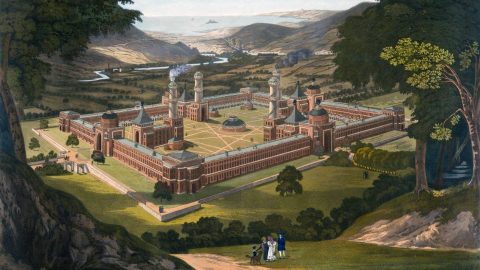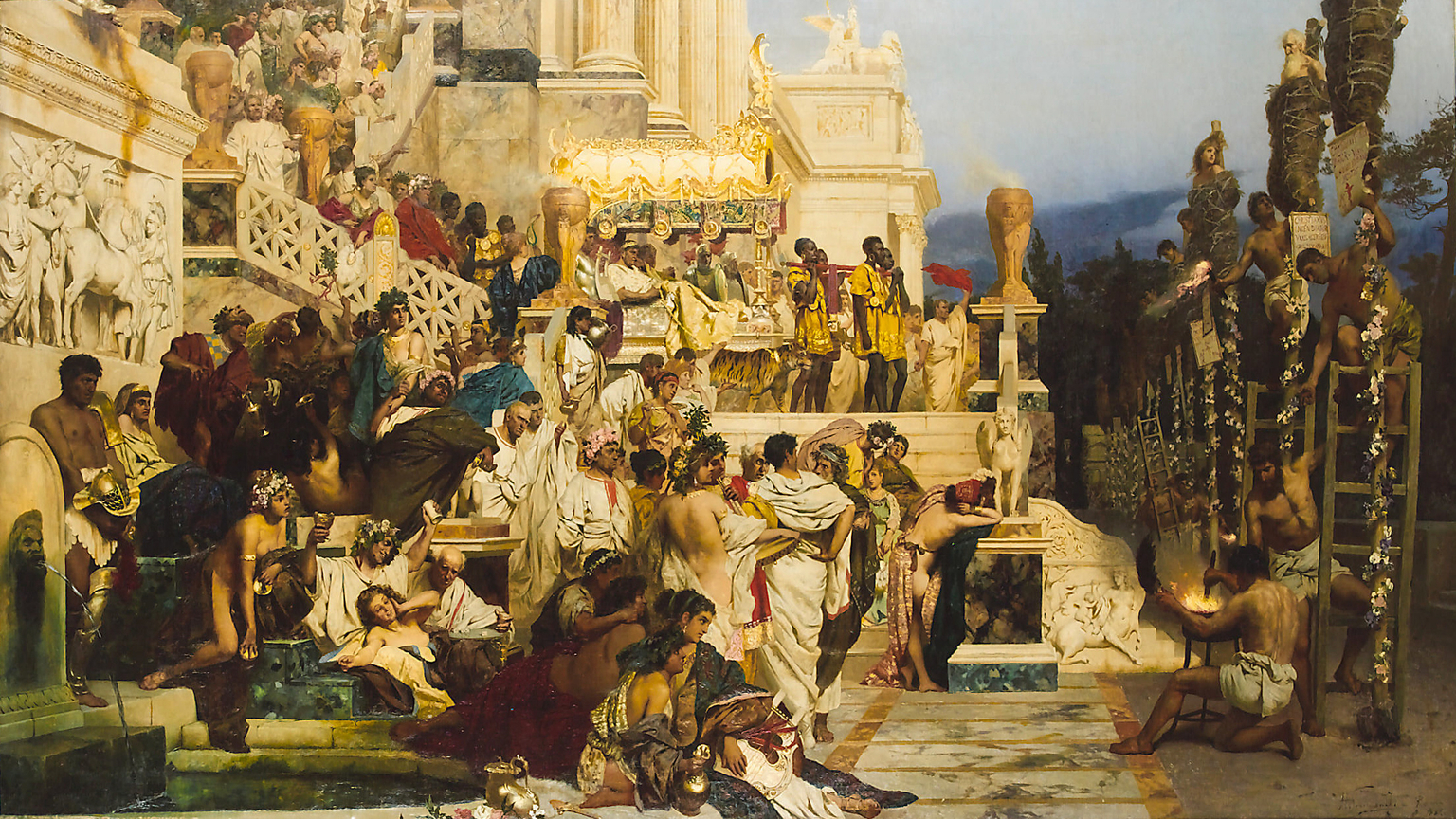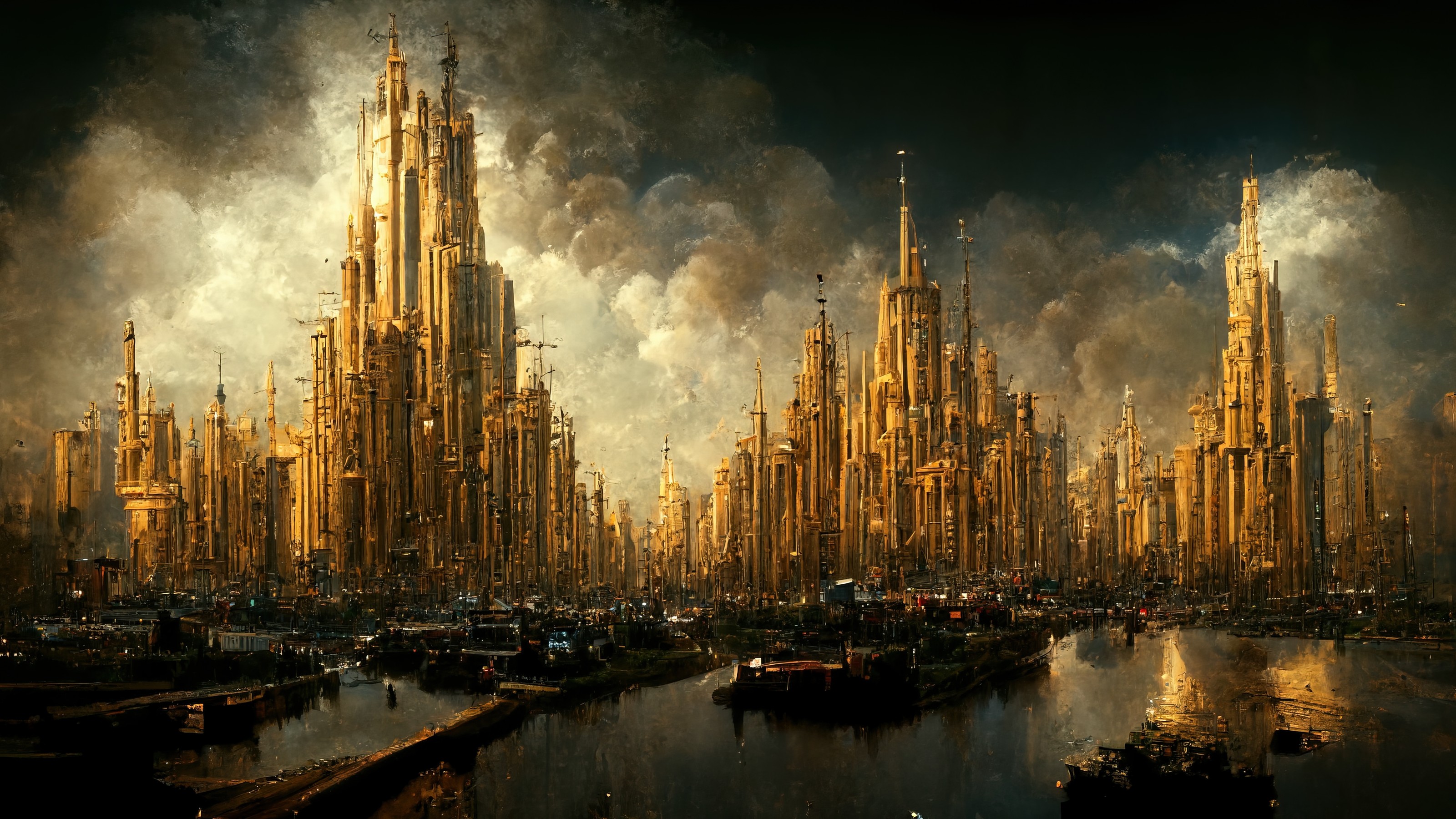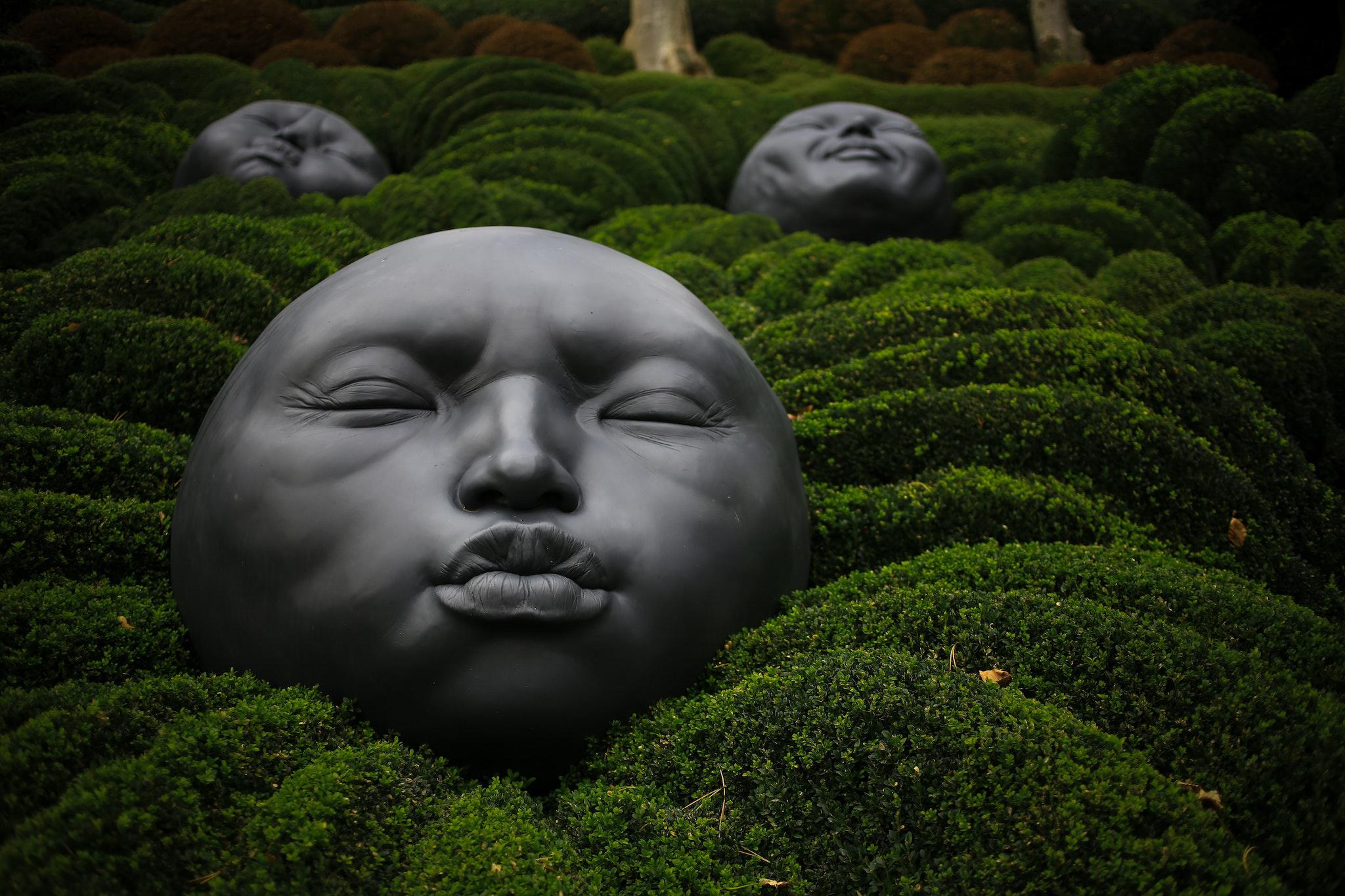5 classic literary utopias — or were they hell on Earth?

- The greatest utopian writing is timelessly fascinating and provocative.
- Many writers have followed the example set by Thomas More with Utopia but these other four stand out from the crop.
- Weigh up utopian pros and cons for yourself. Would you want to live in any of them?
Some of history’s most famous and influential books have conjured descriptions of utopia. However, not every allegedly perfect place would pass the real-world test. Here are five literary utopias — you can decide whether or not you’d want to live there.
Ecotopia by Ernest Callenbach
Written in 1975, Ecotopia tells the story of the first American journalist admitted to the titular fictional breakaway state. Ecotopia is a new nation organized around many of the values of the late-1960s counterculture in the areas once home to Washington, Oregon, and Northern California. The premise allows us to explore themes of environmentalism, decentralization, and eco-socialism in a somewhat familiar setting.
Sustainability is Ecotopia’s central value. Non-biodegradable goods are rarely stocked in stores. Internal combustion engines require permits. The typical workweek is a mere 20 hours. Much of the work is done at a leisurely pace — to the great annoyance of the visiting journalist. The citizens enjoy many sports and recreational activities and are well-informed. Government, largely run by women, is democratic and just. Large parts of its economy are cooperative.
Concerns about crime, so rampant in 1970s America, are non-existent in Ecotopia. The capitol, San Francisco, is a vibrant, clean, solar-punk city in stark contrast to many American cities at the time. Comparisons between Ecotopians and Americans are frequent: The separatists are healthier, happier, more in tune with their emotions, and more sex-positive.
However….
Ecotopia is a young nation with a few kinks to work out. A justified fear of an American invasion runs high. Controls on power consumption mean most lighting after dark is banned. Ecotopians tend to hunt for their meat and enjoy violent war games as an outlet for base impulses. (Men are considered to be more inclined to these tendencies.)
A tendency toward decentralization implies that local governments can impose regulations without much oversight. Most Ecotopians choose to live in segregated communities despite formal guarantees of equality. The limited political discussions in the novel imply that some authoritarian tendencies exist or have existed.
On a more individual level, the narrator repeatedly notes that many of the Ecotopians he speaks to are very smug, which annoys him greatly. More seriously, at one point, he is taken to a spa against his will — with very few people seeming to mind that he was, essentially, abducted.
Beatrice the Sixteenth by Irene Clyde
A British novel from 1909 describing a post-gender society sounds like an anachronism. However, it was written by Irene Clyde, a radical feminist activist also known as Thomas Baty — a writer and lawyer described in retrospect as non-binary. Much of their writing, often done under the name of Irene Clyde, argued against a gender binary. In Beatrice the Sixteenth, they examine a world beyond our binary thinking.
The story depicts an intrepid modern explorer, Mary Hatherley, being sent back in time through mysterious means to the land of Armeria. The people there are feminine but have no gender. Their language has no gendered nouns, reflected in the novel’s prose. They live in splendid palaces in large groups called “households.” The people are described as intelligent, brave, loving, and independent. Their ruler, the titular monarch, defeats a palace coup while rejecting brutality. Life partnerships between Armerians are called “conjux” and are based on mutual respect, love, and companionship rather than sex or material concerns. Divorce is unheard of.
The Armerians have a form of slavery, described by Mary as more tolerable than the conditions of the working class in then modern Britain. Slaves enjoy the right to apply for enslavement in alternative households if they dislike their current situation.
However…
The slaves, of course, might object to the idea they are living in a utopia. Despite the seemingly radical nature of Armeria, large parts of the society remain reactionary. The society is at least mildly aristocratic and considers most of their neighbors barbarous hordes. While the negative aspects of marriage have been abolished, the replacement is remarkably similar. Tellingly, a substantial part of the plot involves a scheme to overthrow the titular monarch and replace them with a foreign queen — hinting that not all is well in the realm.
Walden Two by B.F. Skinner
Dr. Skinner was a psychologist best known for his dedication to radical behaviorism — the philosophy that environmental factors play a major role in shaping human behavior, emotions, and cognition. In Walden Two, published in 1948, he argues for using then non-existent behavior modification methods to build a utopia. He followed up the book with Beyond Freedom and Dignity in 1971, by which point he thought technology had reached a point where his ideas could be enacted.
Walden Two describes a small community built to rely on evidence-based solutions, always willing to try anything that will improve the community’s happiness as long as the data holds up. The result is highly egalitarian — everything, including the behavior of the residents, is scientifically geared toward happiness. The goal of the community’s founder, a man named T.E. Frazier, is sanctuary from all forms of despotism.
The typical workday is only four hours long, citizens may choose a new form of work each day, currency has largely been abolished in favor of time off, free love reigns, and many activities, such as child rearing, are handled by the community. Infractions are not punished, but good behavior is amply rewarded. Thanks to an extensive regimen of “behavioral engineering” beginning at birth, the communities’ adults are high-functioning, happy, and self-motivated people who enjoy plenty of creative and recreational activities.
However….
Many of the same ideas around behavioral modification were put forward by Aldous Huxley in the dystopian Brave New World. There, they are presented as the tools of a totalitarian government. The nature of the government in the commune of Walden Two isn’t fully explored, but it isn’t democratic and it rejects free will. While every social practice enacted by the commune is based on experimental evidence, some of them — for example, abolishing the expression of gratitude toward other individuals — border on the absurd.
Many reviewers have pointed out that the founder of Walden Two is despotic despite his repeated claims to the contrary. He has a level of authority that borders on dictatorial. Regardless, there have been many real-world attempts to build a society based on the one described in the novel. Dr. Skinner was personally impressed by the still-functioning Los Horcones community in Mexico.
Island by Aldous Huxley
Aldous Huxley was an English writer most famous for his dystopian novel Brave New World. His utopian work, Island, published in 1962, was written as a counterpoint to that more popular novel. While some of the issues covered in Island — such as eugenics and overpopulation — are dated, the location is still well worth exploring.
The isolated Kingdom of Pala, an island in the Indian Ocean, hosts a hybrid culture devised by a Scottish humanist doctor and a Mahayana Buddhist king. The residents of the island are highly spiritual but avoid superstition. They strive to live in the moment, pursue education, and work toward self-actualization. They meditate frequently. Children are raised in mutual adoption clubs that share the work of parenting and prevent them from overexposure to their parent’s vices.
A psychedelic drug similar to psilocybin is used therapeutically and for spiritual growth. To help residents live in the moment, the island’s native parrots have been taught to mimic phrases like, “Here and now, boys!” The island has modern technology but has selectively industrialized to avoid the pitfalls of materialism, alienation, and consumerism. Instead, industrialization ensures that nobody lives in poverty, that all needs are met, and that physical labor isn’t unnecessarily grueling.
However…
Limited industrialization and a tendency toward pacifism has left Pala defenseless against neighbors who might want to steal their oil. The traditions of the Palanese utterly shock visitors who have been educated in a conservative, Western fashion. Huxley’s cynicism toward utopias, which inspired Brave New World, continues in a restrained manner here. Several characters are fairly resigned to the idea that their utopia cannot last forever, even as they sing its praises.
Utopia by Thomas More
Sir Thomas More was an English philosopher, Henry the VIII’s Lord Chancellor, and the patron saint of (among other occupations) politicians and lawyers. His greatest contribution to literature is the novel Utopia, published in 1516. In many ways, it is the first modern example of utopian literature to which all others are compared.
The island of Utopia is a meritocratic elective principality somewhere in the Americas. According to a traveler who visited for five years, the island enjoys a wonderful form of government and social organization. Citizens elect local officials on merit, who similarly elect their superiors. Private property is abolished, but everyone can request all they need from state warehouses. As all citizens are employed in productive work, the workday is a mere six hours. Scholars are identified at a young age and placed into important positions.
Religious toleration is extended to all. Women often do the same work as men and have many rights. The republic’s citizens also enjoy a sizable welfare state, free healthcare, the right to divorce, and access to euthanasia. The island maintains its standard of living through shrewd trade policy and encouraging indifference to luxury goods and precious metals.
However…
Much of this is made possible by a sizable slave population consisting largely of criminals. Given how certain tasks, like meat butchering, are strictly limited to slaves, it is implied that slavery can never be abolished. Crimes leading to enslavement include adultery and repeated traveling without an internal passport. Premarital sex is punished with a lifetime of celibacy.
A religious toleration of sorts is extended to atheists. They must regularly defend their position before priests until they change their minds. Equality of the sexes does not go very far, and women are still generally subservient to men. Unemployment is illegal, and the primary goal of state officials is to prevent idleness. To ensure the population is evenly distributed, people can be taken from their homes and moved into new ones across the country. Privacy is not considered a basic freedom.
On a more mundane note, More, in the style of many intellectuals, posits that the people of Utopia will be happy spending their free time going to lectures, reading, or even putting in more hours at work. Bars, private meeting rooms, and places of vice are nowhere to be found. All clothes come in the same color: gray.
Despite all of this, Saint More did the world two great favors with his book. He created the first literary utopia of the modern age. Secondly, with the name of his island — utopia is based on the Greek for “no place” — he reminds us that while a better world is possible there is, by definition, no utopia.





